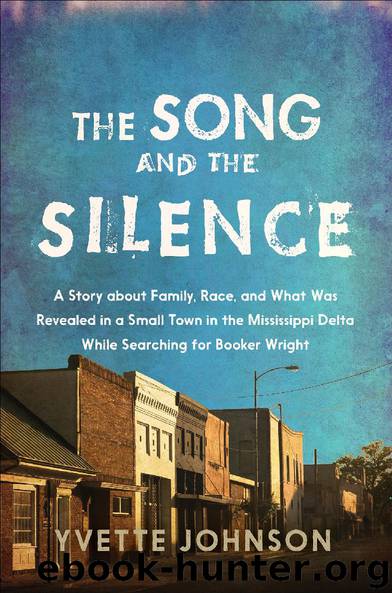The Song and The Silence by Yvette Johnson

Author:Yvette Johnson
Language: eng
Format: epub
Publisher: Atria Books
A Moralist
The night Mississippi: A Self-Portrait aired marked the culmination of one of Frank De Felitta’s most ambitious projects. Almost an entire year had passed between the evening when Frank filmed Booker Wright and the night when the waiter’s image was splashed across televisions screens in homes throughout the nation.
During that year Frank experienced a lingering disquiet about Booker’s scene. As a filmmaker he knew the raw vulnerability Booker exhibited made for wonderful television. As a concerned citizen Frank understood that Booker’s scene offered up a snapshot of the inhumanity of segregation, an image not diluted by screaming crowds or conversations about critical legislative change. And as a human being, Frank had seen enough of Greenwood, Mississippi to know that those two and a half minutes of footage had the potential to upend Booker’s world and to put the waiter’s life in grave danger.
After recording Booker’s scene, Frank had provided the waiter with his phone number and told Booker that he could delete his interview from the film if Booker changed his mind. Months later when it was getting close to their airdate and Frank hadn’t heard from Booker, he reached out to him directly. Frank wanted to give Booker one last chance to have the scene removed and maybe even to quiet the worry in his soul, but the waiter refused.
In the days before Mississippi: A Self-Portrait aired, newspapers across the country were publishing stories about it. Like the film itself, many of the writers of these stories were clearly attempting to examine and understand the race issue in the Southern states. Several articles included excerpts from the film. When considered in its entirety, most reported that the documentary was balanced; however, some of the printed excerpts from the film may have sounded less so. Taken from Frank McGhee’s voice-over, a few of the excerpts sounded like the musings of an inquisitive scientist describing White Mississippians as if they were a strange, difficult-to-understand species. Johnstown, Pennsylvania’s Tribune-Democrat included the following from McGhee’s voice-over in the film:
Put race aside, and most Mississippians are humble, gentle, charming, courteous, hospitable, and humorous people . . . Add race, and many of the Mississippians become fearful and sense doom in the future. They feel they are surrounded by Negroes used as unwitting instruments by outsiders—Negroes who do not realize they are being used in a larger plot to weaken the white race and destroy America. They see themselves as the last defenders of Western Civilization.
The personal concern of nearly all Mississippians for individual Negroes is genuine. It is warm and deep. They feel a responsibility for the welfare of the Negroes they know; care for them in illness and distress; often intercede for them in minor brushes with the law. It’s a paternalism, tinged with guilt; an outgrowth of the slave-master relationship requiring subservience of the Negro.
Some of the reports made Frank and Fred Ramsey sound like heroes who’d returned home from a harrowing journey. In the New Jersey Trentonian, Fred Ramsey Jr. described Greenwood as “the scene of the Emmett Till murder and .
Download
This site does not store any files on its server. We only index and link to content provided by other sites. Please contact the content providers to delete copyright contents if any and email us, we'll remove relevant links or contents immediately.
| General | Discrimination & Racism |
Nudge - Improving Decisions about Health, Wealth, and Happiness by Thaler Sunstein(7706)
The Fire Next Time by James Baldwin(5446)
iGen by Jean M. Twenge(5416)
Adulting by Kelly Williams Brown(4574)
The Sports Rules Book by Human Kinetics(4386)
The Hacking of the American Mind by Robert H. Lustig(4383)
The Ethical Slut by Janet W. Hardy(4253)
Captivate by Vanessa Van Edwards(3839)
Mummy Knew by Lisa James(3691)
In a Sunburned Country by Bill Bryson(3542)
The Worm at the Core by Sheldon Solomon(3487)
Ants Among Elephants by Sujatha Gidla(3467)
The 48 laws of power by Robert Greene & Joost Elffers(3291)
Suicide: A Study in Sociology by Emile Durkheim(3022)
The Slow Fix: Solve Problems, Work Smarter, and Live Better In a World Addicted to Speed by Carl Honore(3009)
The Tipping Point by Malcolm Gladwell(2922)
Humans of New York by Brandon Stanton(2873)
Get What's Yours for Medicare: Maximize Your Coverage, Minimize Your Costs by Philip Moeller(2732)
Handbook of Forensic Sociology and Psychology by Stephen J. Morewitz & Mark L. Goldstein(2705)
